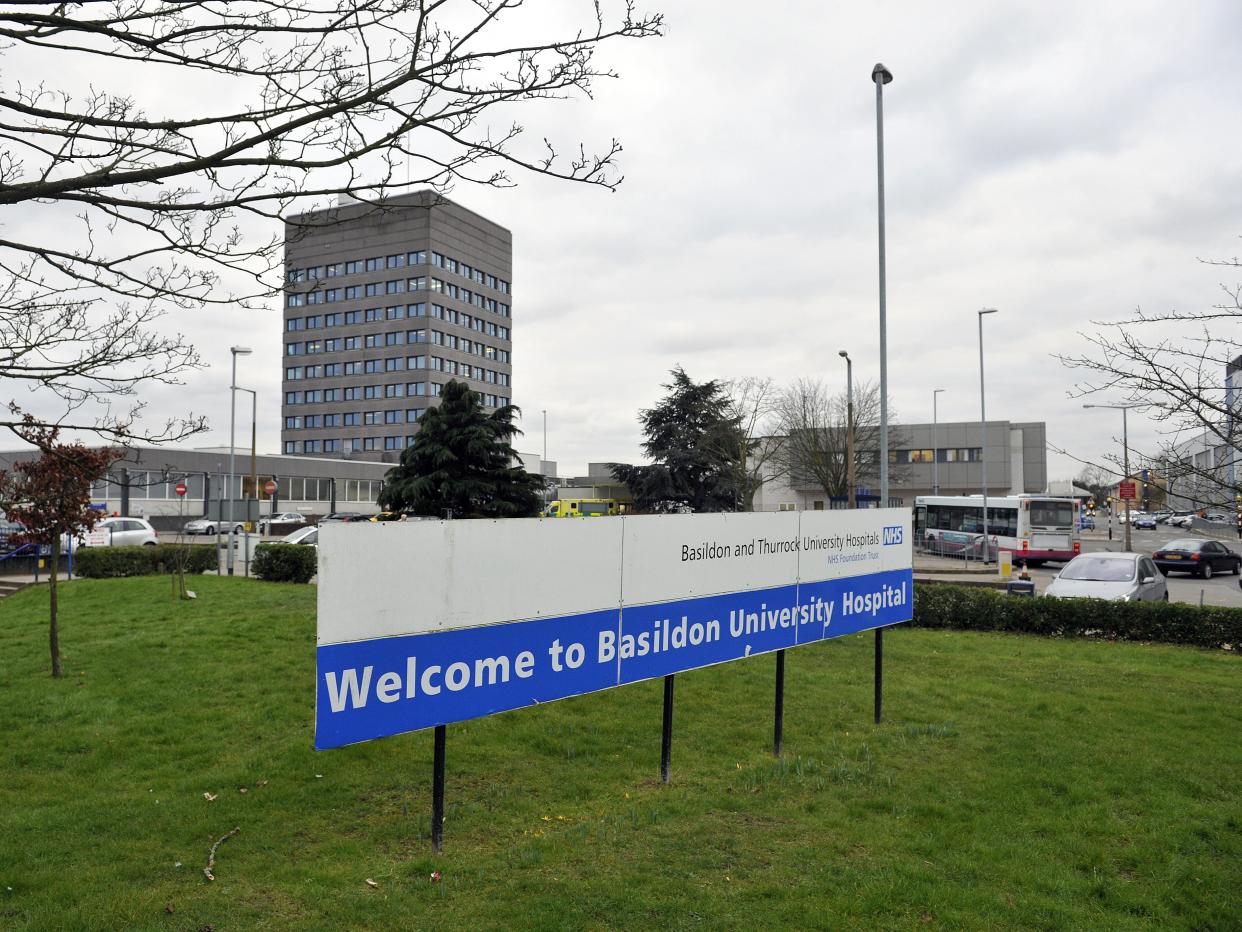Nurses drafted in to shore up understaffed maternity unit

Nurses are being drafted in to help understaffed wards at an NHS hospital which has dozens of midwife vacancies, The Independent has learned.
The Royal College of Midwives told The Independent it was worried the practice was becoming more widespread as NHS trusts became desperate to fill vacancies on wards. It warned using registered nurses instead of midwives could impact on the care of women and babies.
At Basildon University Hospital, the staffing shortages have become so bad the trust has told workers registered nurses will be used to look after women on the postnatal ward.
The trust has 42 full-time vacancies for midwives but is aiming to recruit 60 new midwives by the autumn.
It is also actively considering moving planned caesarean sections to Southend Hospital, part of the Mid and South Essex NHS Foundation Trust, which runs both sites.
Some consultants are said to be resisting the move and the trust told staff in a leaked email the change would not happen in August but would be kept under review.
One worker told The Independent: “Basildon doesn't feel like a centre of excellence at the moment. I worry that flooding a department with newly qualified midwives and agency workies is a recipe for patient harm.”
In the email to staff on Friday, sent by senior managers, staff were told: “This is a challenging period for us as we have a lot of vacancies in our team, as well as colleagues needing to isolate away from work; but we know that everybody in our team is doing their best and working together to offer excellent care and experience to the families we work with.
“Our efforts to increase the number in our team are going well and we have more than 60 newly qualified and experienced midwives due to be joining our team in the autumn.”
As part of the steps to improve staffing it said shifts would be “opened to registered nurses to support our midwives in caring for post-natal women”. It will also be block booking agency nurses for longer contracts with the trust and increasing the amount it pays its own staff for working overtime.
It added: “We still are looking at what more we can do to manage demand across our units. One option we have considered is temporarily relocating our elective caesarean sections. We have decided not to do this during August, but this decision will remain under review.”
Midwives train separately to registered nurses and are a distinct profession. Moves to use staff interchangeably sparked concern from the Royal College of Midwives (RCM).
Birte Harlev-Lam, the RCM’s executive director, said: “We can fully appreciate why NHS trusts and boards that are so desperate to cover gaps in their staffing would do this, and we are hearing reports of this across the country.
“We have real concerns about the impact on the quality and safety of care. It is worrying that midwives who have years of specialist training and the knowledge, skills, and experience to deliver the best possible care to women and babies are not in place doing that. Nurses are incredibly skilled professionals within their fields, but they are not midwives and may miss problems they are not trained to identify.”
She added: “There are also serious shortages of both professions, so moving nurses away from their areas simply creates problems there. We have arrived at this crisis point for maternity services because of the failure of successive governments to invest properly in maternity services, and to tackle the midwife shortages the RCM has been highlighting for well over a decade.”
The RCM has previously warned the country is short of at least 2,500 midwives.
NHS England has agreed to invest £96 million in 2021 to boost midwifery staffing levels by 1,000 and to recruit more doctors and provide better training to staff.
The Royal College of Nursing declined to say whether it was concerned by the move and said only that it was monitoring the situation.
The trust said women would be cared for by nurses who would have competency training for looking after postnatal women and would see around one or two nurses per shift used.
A spokesperson for Mid and South Essex Foundation Trust, said: “Women and their families will continue to be cared for by our experienced midwives and nursing teams as they always have done, and we are looking forward to welcoming a further 60 highly experienced and student midwives to our team in the autumn.”
Read More
Boris Johnson warns against ‘premature conclusions’ as UK sees further fall in Covid cases
Paramedics abused and assaulted while on duty, survey reveals

 Yahoo News
Yahoo News 
